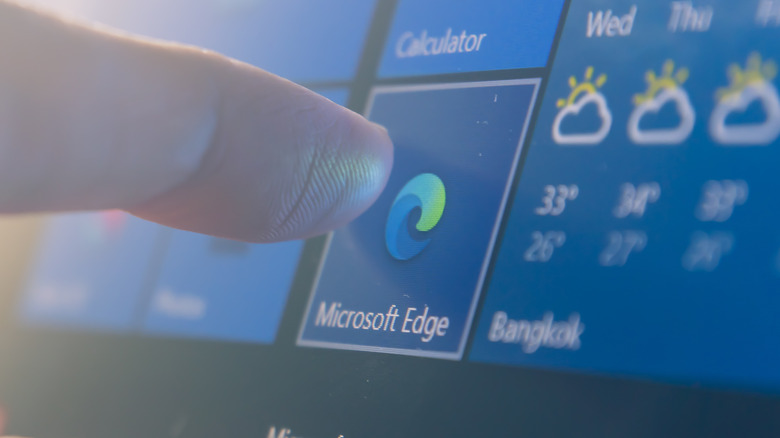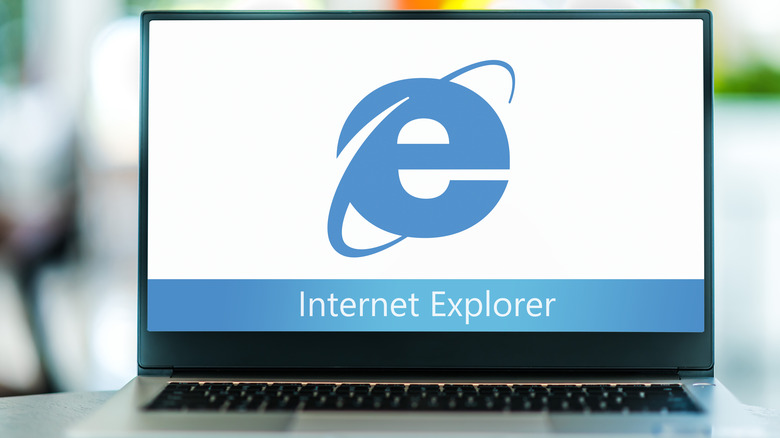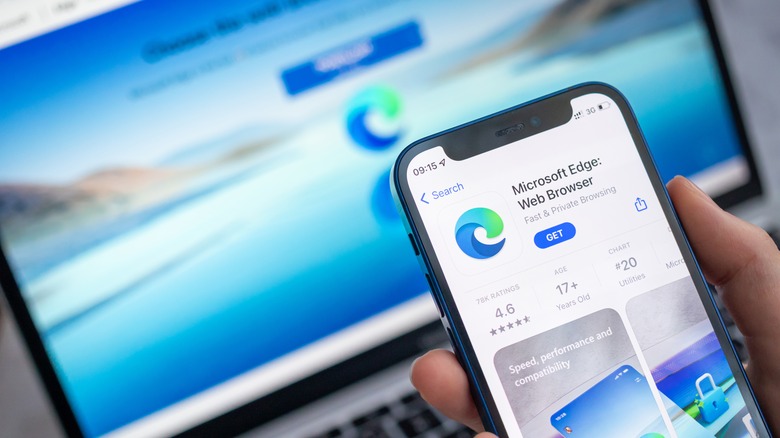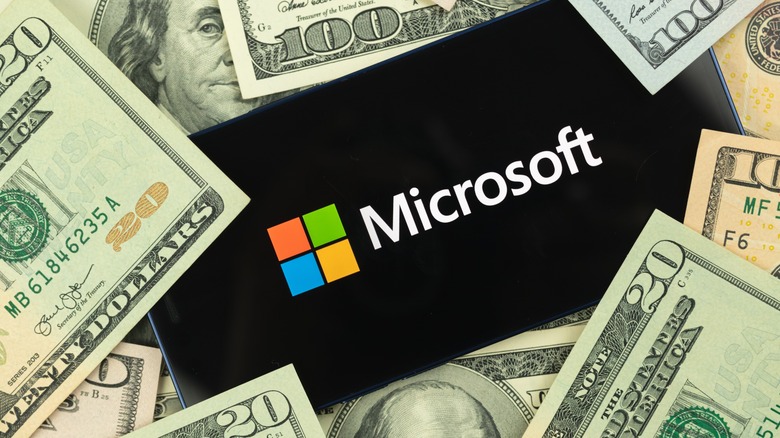This Is Why So Many People Hate Microsoft Edge
Microsoft was once the creator of the world's most popular internet browser, but the time when everyone used Internet Explorer has long since passed. In an attempt to recapture its previous web browsing relevance, the company launched Microsoft Edge. The browser has undergone a constant string of upgrades in the years since, including one that shifted it to Google's Chromium platform (via Microsoft). With the same basic platform as the current most popular browser, and a whole host of features with more being added as time went on, Edge has everything it needs to be a success.
There is, however, a slight problem: people hate it. In a SlashGear poll, Edge came very low down in the popularity rankings, averaging just over 6%. This puts it way behind Chrome, which topped the list at 56%, and lagging well behind Apple's homegrown effort, Safari, which 27% of readers said they use. It even lagged behind Firefox, which has its own string of problems.
As far as the source of the vitriol, it's a little complicated. Part of it is ancestral, or as ancestral as a product made by a 47-year-old software company can get. Other people hate it because of Microsoft's forceful marketing practices. If you're not in the two main groups, don't worry, there's a far longer list of reasons why people are swerving Edge. Why, despite Microsoft's best efforts, do people have a very strong dislike for the company's premier browser?
People still haven't forgiven Internet Explorer
Some of Edge's problems date back to before it was born. Everyone who uses the internet will be aware of Microsoft's previous browser, Internet Explorer. The younger crowd will probably remember Internet Explorer as an object of ridicule, only existing as a way to install something like Chrome on a new PC. Older folks are also likely to hold this opinion, but will also recall Internet Explorer was the standard way to get online in the early 2000s.
Unfortunately for Microsoft, Internet Explorer had its share of problems. As soon as some true competition showed up, first in the form of Firefox and eventually with the likes of Chrome, its user share declined and never really recovered (via Visual Capitalist). It was slow, full of bugs, and fraught with loopholes bad actors could exploit. Internet Explorer launched way back in 1995 and survived until June 2022. It's an incredible legacy, but that legacy may in part be why Edge is struggling so badly. Consumers' bad memories of Internet Explorer may be what stop them from giving Microsoft Edge a chance.
It's all a bit forced for many people's liking
Microsoft has a history of believing something is a good idea and, instead of just letting people flock to that good idea, forcing them to use it. This, as you could imagine, is quite off-putting. The company tried it years ago with Kinect, it tried it with Bing, and now Edge is the latest thing you have to actively try to avoid. The browser comes pre-installed as part of Windows, which is fair enough as many companies bundle other software in with the piece that you actually want. However, Microsoft isn't just happy the browser is there as an option: it wants to force you to use it as often as it possibly can. Normally, you could use it briefly while you download the browser of your choice and never have to bother with it again. Microsoft simply won't allow this.
Yes, you can set another browser as your default in the options menu, but that doesn't matter. If you use the Windows search bar function or click on a help hyperlink in any of the settings menus, a Microsoft Edge window will pop up instead of it opening in your regular browser. Some workarounds were launched that "fixed" this issue, namely one from Firefox and a third-party app called Edge Deflector. Microsoft wasn't happy with this and proceeded to stop the apps from working with an update. Even before all this, Microsoft was very forceful with its new browser. Some even compared its methods of getting Edge onto users' PCs to spyware and nagware.
Microsoft is trying to make money from you
Many browsers are there to make money from you. With a few exceptions, whatever you're using is probably tracking your actions, gathering information on you, and using it to target ads at you or sell alongside millions of other people's information to folks who enjoy analyzing data. While this is sort of accepted or ignored, Microsoft may have crossed the line a little when it launched a non-information-based money-making feature.
Microsoft partnered with Zip, a company that offers pay-in installment plans, and implemented a "buy now" feature in their browser which would allow users to quickly purchase products. The users were also offered a buy now, pay later option that many people saw as potentially predatory. There is a suggestion that the schemes encourage compulsive shopping, and may get people into more debt than they can manage. The harsh penalties such schemes have for missed payments have also been criticized.
Others drew parallels with how Internet Explorer went downhill. Either way, it's more bad PR for a browser many people aren't particularly fond of in the first place. Considering barely anyone uses it, it's actually quite astonishing how long the list of Microsoft Edge-related criticisms is. There's a suggestion that Microsoft is packing in so many half-baked features that it's essentially just asking for bugs and security problems further down the line. As things stand, it isn't actually that bad a browser. But there are far better options available, and Microsoft has made Edge far too easy to hate.



